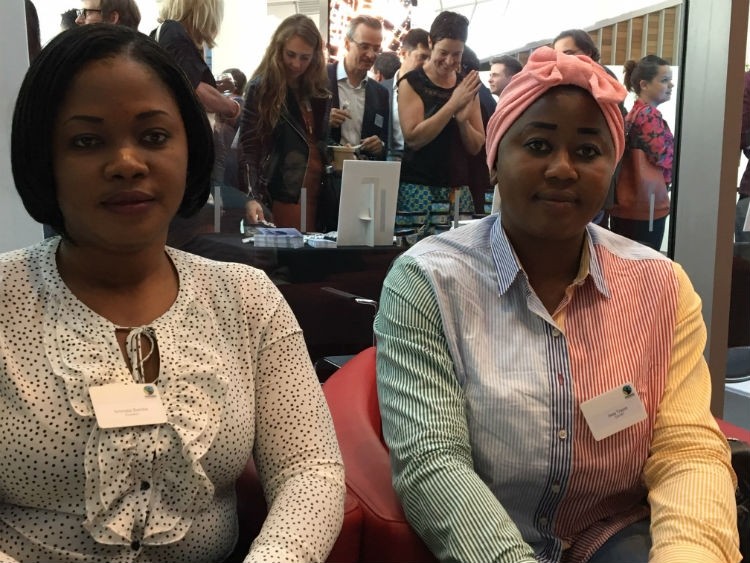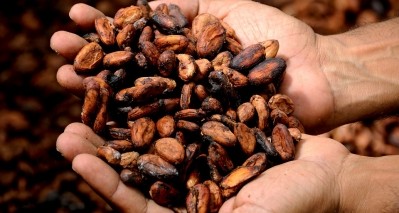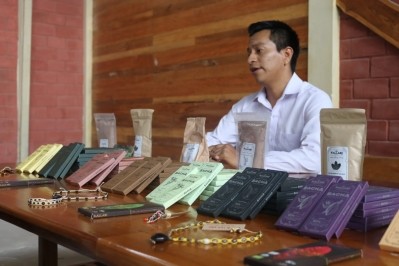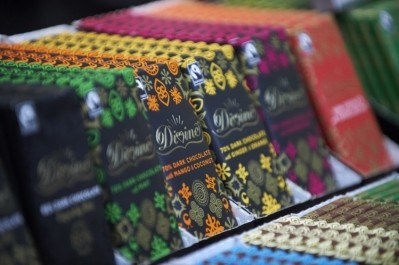Equality
Gender equality in the cocoa trade: two female farmers from Cote d’Ivoire readdress the balance

‘If you educate a man you educate an individual, but if you educate a woman you educate an entire nation’ according to an African proverb that formed a backdrop to a discussion on gender equality in global trade at a recent Fairtrade Conference in London.
When Traore Awa, general manager, of the CAYAT cocoa cooperative in Cote d’Ivoire, returned from the Fairtrade Women’s School of Leadership, which offers guidance and business advice to women in cocoa growing communities, she said her transformation was “like a miracle”.
Human rights
“I learned so much,” she says. “I Learned about human rights, democracy, the role of women in the economy, and what women must do to take a leading position in that economy.”
Awa, and Aminata Bamba, from Ecookim, another of the Fairtrade certified cooperatives in Cote d’Ivoire, were at the conference to provide first-hand accounts of life for women working on cocoa plantations in West Africa.
What is the Fairtrade Premium?
It’s what sets Fairtrade apart from everyone else. On top of the price farmers and workers receive for their produce or labor, they receive an extra sum of money to invest in improving the quality of their lives. This extra sum of money is called the Fairtrade Premium. Cocoa farmers, as an example, receive an extra $200 per tonne of cocoa beans they sell. In 2016, more than €150m ($174m) of Fairtrade Premium was generated through sales and given back to communities.
Awa also talked about how Fairtrade’s Women’s School of Leadership training program, which is part funded by the Co-op and Compass, has transformed not only her life, but hundreds of other women’s lives.
When Awa was appointed general manager of CAYAT, she says at first the men were not happy. “They said ‘no way are we being led by a woman’. But I said ‘I will show you, I will change things, I will show them a woman can be a leader’. I had to work hard to prove I could do this.”
Unpaid labor
In the community where Awa and Bamba come from women are traditionally used as unpaid labor. A typical day for a woman means waking up at 5am to fetch water from the well for the family, take care of the house and children before starting work in the field at 7am - before returning home at 7pm to cook and care for the family, going to bed at 9pm, ready for the next day.
Bamba, who is in charge of Ecookim’s sustainable development program, says that very often the women help the husband throughout the production stage to the drying process then the men go out and sell the cocoa beans, but don’t recompense the women for their work.
The Fairtrade Leadership School has trained 413 women in Awa’s community and with her at the helm of the coop, improvements in the village is already noticeable with the introduction of a village water pump, solar panels for lighting and schools for children.
“We have demonstrated the important role women play in society. We have demonstrated that women must take a leading position in order to change things in our society,” says Awa.
“A lot of women weren’t aware of that position in society because of certain taboos. And now it’s turned around, men come to us and encourage us to move forward – and men have even made the decision to dedicate the Fairtrade Premium to help us as women.”
Male dominated
Despite these changes for the good Bamba says that in her community women still don’t feel able to fully express themselves. The cocoa industry is very male dominated – and men are not used to having women directing them.
She says that access to land is still a main issue causing the discrepancy in pay towards women.
“We have been using the Fairtrade Premium to set up primary schools so the children are looked after while the women go to work,” says Bamba.
Many young women choose to leave the village to find work in the city, a situation Awa wants to change: “The school is working to combat prejudice to emphasize importance of role of women and if they see they are able to have access to opportunities in the cocoa industry, there is no longer a need to leave the village and go to the city to work.”
Awa says that it was difficult as a young woman in her situation to be in charge of a coop - and be in charge of men in the organization.
“Following the program, I became very strong and grew in confidence. I was in a position to help other women, to bring things into their own homes, to help themselves, so that the members of the governing body have given us a proper place in our community.”
She says that what she discovered most was that it is up women to push things forward and change things, “because no-one else will”.
Bamba says that the recent ‘farmgate’ price rise for cocoa set by the CCC, the national regulator, has not made a huge difference for farmers’ livelihoods. “If you take in to account production costs, there is still a huge discrepancy of what is required for a decent income for the producers. It’s not sufficient to ensure wellbeing for farmers, which is our main concern,” she says.
Awa also called for fresh investment for the Leadership School, in order to meet new challenges affecting the cocoa industry.
“We need access to new technology and IT skills. In terms of sustainability, we need support so that the Women’s Leadership school program can be continued and the good groundwork can be continued in the future.”
Systemic issues
The theme of this year’s Fairtrade Conference was ‘The Future of Trade: Can it work for everyone?’ and explored new sourcing, programs and expertise to tackle systemic issues in product supply chains.
Euan Venters, Fairtrade Foundation’s commercial director, says: “More companies than ever are interested in and taking responsibility for their supply chains. Issues such as child labour, climate change and transparency have been widely reported. As a result, where and how, companies source their raw materials is under intense scrutiny.
“We want to work with businesses to help them meet their responsible sourcing and sustainability goals, work towards the Sustainable Development Goals (SDGs) and comply with Modern Slavery legislation.
“Working with Fairtrade not only helps business understand their supply chains, address sustainability challenges, talk about the change they are effecting and convince consumers of their mission but, most importantly, brings tangible benefits to producers and their communities.”














